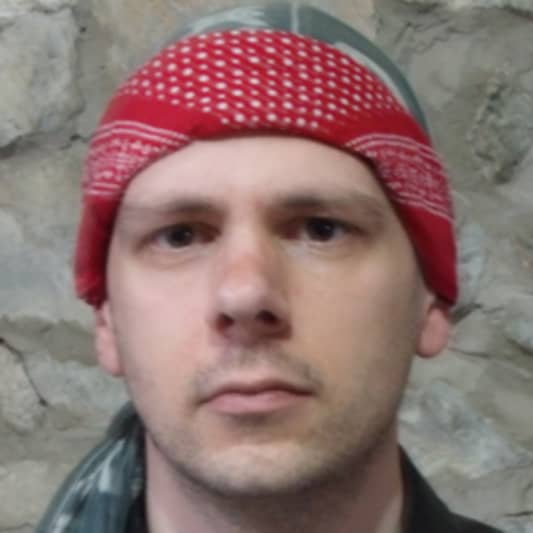
I’m a composer, arranger, singer, instrumentalist and music producer. I mix and master music and create web pages. I have several own music projects – Fyra, Objet de Plaisir and Anthony McBazooka.
Send me a note through the contact button above.
Interview with Myrddin Triguel
Q: Is there anyone on SoundBetter you know and would recommend to your clients?
A: Not yet. But I hope to meet some.
Q: Analog or digital and why?
A: Both. Because both have their advantages.
Q: What's your 'promise' to your clients?
A: I'll do my best to understand their intention and to give them the result they wish for.
Q: What do you like most about your job?
A: Improvement.
Q: What questions do customers most commonly ask you? What's your answer?
A: Is it possible to make something of this song/these songs? My answer is always yes, if you are not afraid to do some work or let work be done.
Q: What questions do you ask prospective clients?
A: What is your intention with this song/album?
Q: What advice do you have for a customer looking to hire a provider like you?
A: You should always chose the one you feel would be the best to let your music sound as you want it. The best gear also only makes the sound that the human using the gear gets out of it.
Q: If you were on a desert island and could take just 5 pieces of gear, what would they be?
A: There is no electricity on a desert island, right? Then I'd take my acoustic guitar and an electric guitar – the latter only to be able to practise.
Q: What was your career path? How long have you been doing this?
A: I have a small biography for every single thing I do on my website: http://myrddin.triguel.com/en/what-i-do/
Q: Which artist would you like to work with and why?
A: Joey DeMaio from Manowar. Because he won't let me stop working until it is perfect. I like the challenge to satisfy people who are hard to satisfy.
Q: Can you share one music production tip?
A: Don't be afraid of things that seem to be too complex. It may take some time and effort to learn them but it's totally worth it. One example: once you learned how to use a multiband compressor, you may notice how limited you can sometimes be with a single band compressor. It took some time to learn to use it but finally your music may sound a lot better.
Q: What type of music do you usually work on?
A: I am not specialised in any specific music style. I have always been open minded and I always loved good songs, not a special genre. And I love new experiences, because I can learn a lot from them.
Q: What's your strongest skill?
A: I think I can say without false modesty that my technical skills are pretty good with all the experience and knowledge I have, but what I value even more and where I am really trying to do my best is communication with the artist(s).
Q: What do you bring to a song?
A: Depends on what the song needs. I want a song to transport the intended emotion and atmosphere.
Q: What's your typical work process?
A: That's a very difficult question because it depends so much on the job. Still I have developed my routines with which I try to mix a song first. Then I can hear what is necessary to improve the song and after that everything's possible. ;-)
Q: Tell us about your studio setup.
A: I mostly use virtual effects to achieve the sound I'd like to have. Working with analogue gear is only an option when I can afford good hardware. Many virtual effects have such a great quality nowadays, so it would not make any sense to invest in cheap hardware. I use Cubase and Reason as DAWs. I monitoring with awesome speakers made in GDR which would cost many 1000 Euros if they'd be built today. Frequency range: 30-22000 Hz. So I also can handle sub-bass frequencies without problems.
Q: What other musicians or music production professionals inspire you?
A: All those who don't see themselves as “finished”. There is always still a lot to learn and I admire people who still want to improve although they are already good.
Q: Describe the most common type of work you do for your clients.
A: The most common type of work I do can best be described as a mix of everything. Basically I can compose, arrange, sing, play several instruments like guitar, bass and keyboard, mix and master. I use all of these skills to make music sound good in the end.
- Mixing EngineerAverage price - $500 per song
- Mastering EngineerAverage price - $80 per song
- ProducerAverage price - $500 per song
- Singer - MaleAverage price - $70 per song
- Keyboards - SynthAverage price - $70 per song
- Electric GuitarAverage price - $70 per song
- Acoustic GuitarAverage price - $70 per song



